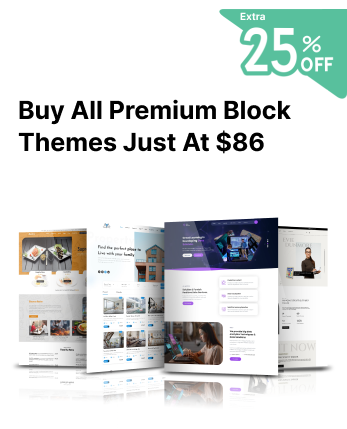Introduction
The eCommerce landscape in 2025 is more dynamic and competitive than ever before. With millions of businesses shifting online and consumers embracing digital shopping experiences, having a professional, user-friendly online store is no longer optional; it’s essential. Whether you’re launching a brand-new product line, expanding your brick-and-mortar business, or exploring dropshipping, your success starts with the right tools. One of the most critical decisions you’ll make is selecting the best ecommerce website builder for your business. The right platform not only makes store setup easier but also impacts your site’s performance, customer experience, and long-term scalability. This guide is designed for entrepreneurs, small business owners, and startups who are ready to launch or upgrade their online store. If you're overwhelmed by the sheer number of platforms available, you’re not alone. That’s why we’ve compiled this comprehensive list of the top 10 website builders for eCommerce in 2025. You’ll discover the features, strengths, and ideal use cases for each, helping you confidently choose a builder that fits your business goals and budget.
At Creta Themes, we craft premium WordPress block themes designed for high performance, lightning-fast loading, full responsiveness, and built-in SEO optimisation, building stunning, user-friendly websites that engage visitors and drive conversions effortlessly.
What to Look for in an Ecommerce Website Builder
1. User-Friendliness and Ease of Setup
A great eCommerce builder should offer a simple, intuitive setup process with drag-and-drop functionality, clear instructions, and minimal technical knowledge required. This is especially important for beginners or busy entrepreneurs who need to launch their store quickly.
2. Customization and Design Flexibility
The ability to customize themes, layouts, colors, and fonts helps your store reflect your brand identity. The best builders offer flexible templates and design tools, allowing you to create a unique and professional-looking site without needing to code.
3. Mobile Responsiveness
With mobile commerce booming, your online store must look and function perfectly on smartphones and tablets. A good website builder automatically adjusts layouts for different screen sizes, ensuring seamless shopping experiences across all devices.
4. Payment Gateway Integration
Support for multiple payment options like credit cards, digital wallets, and international gateways is essential. The platform should make it easy to integrate secure and reliable payment solutions for smooth, trustworthy transactions.
5. SEO and Marketing Tools
To stand out in search results and reach your audience, your builder must offer built-in SEO features, blog support, and email marketing tools. These elements help improve visibility and drive traffic to your site organically.
6. Inventory and Order Management
Efficient inventory tracking and order management tools save time and reduce errors. Look for platforms that offer real-time stock updates, order status tracking, and low-inventory alerts to keep operations running smoothly.
7. Pricing and Scalability
As your business grows, your needs will change. The best ecommerce website builders provide flexible pricing plans and upgrade options so your store can scale with added features, storage, and bandwidth, without needing to migrate platforms.
10 Best Ecommerce Website Builders in 2025
1. Shopify

Shopify is one of the best ecommerce website builders for businesses of all sizes. It offers a user-friendly interface, powerful tools, and seamless integrations that help users quickly build and manage online stores without needing advanced technical skills.
Key Features:
-
Drag-and-drop store builder
-
100+ professional themes
-
Built-in payment gateway (Shopify Payments)
-
App marketplace with thousands of integrations
-
Multichannel selling (Amazon, Facebook, Instagram)
Pros:
-
Easy to use and beginner-friendly
-
Scalable for growing businesses
-
Excellent 24/7 customer support
Cons:
-
Monthly fees can get expensive
-
Transaction fees if not using Shopify Payments
2. Wix eCommerce

Wix eCommerce is ideal for entrepreneurs who want beautiful store designs with simple setup. It provides flexibility and creative control, making it easy to build and manage small to medium-sized ecommerce websites with minimal effort.
Key Features:
-
Intuitive drag-and-drop editor
-
800+ customizable templates
-
Secure online payments
-
Mobile-optimized storefronts
-
Built-in SEO and analytics tools
Pros:
-
Extremely beginner-friendly
-
Great design flexibility
-
Affordable pricing
Cons:
-
Limited features for large-scale ecommerce
-
Fewer advanced marketing tools
3. BigCommerce

BigCommerce is a powerful platform built for scalability. It offers advanced features and customization options, making it suitable for mid-sized to enterprise-level businesses looking for growth without switching platforms.
Key Features:
-
No transaction fees
-
Advanced SEO tools
-
Multi-currency and multilingual support
-
Headless commerce capabilities
-
Integrated sales across Amazon, eBay, Google
Pros:
-
Highly scalable for fast-growing businesses
-
Strong SEO performance
-
Comprehensive built-in tools
Cons:
-
Steeper learning curve
-
Fewer free themes are available
4. Squarespace Commerce

Squarespace Commerce stands out among the best ecommerce website builders for creatives and small businesses. It combines visually appealing templates with robust ecommerce functionality to help users create elegant, functional online stores.
Key Features:
-
Award-winning, mobile-responsive templates
-
Secure checkout and inventory management
-
Integrated email marketing
-
Subscription and digital product support
-
Blogging and portfolio tools
Pros:
-
Beautiful designs perfect for visual brands
-
Seamless all-in-one platform
-
Built-in marketing tools
Cons:
-
Limited payment gateway options
-
Less suitable for complex stores
5. WooCommerce

WooCommerce is a flexible, open-source ecommerce solution that runs on WordPress. It’s ideal for users who want full control over their store’s functionality and design, with the ability to extend features using thousands of plugins.
Key Features:
-
Free core plugin for WordPress
-
Customizable product pages
-
Extensive plugin and theme support
-
Supports physical and digital products
-
Multiple payment gateway options
Pros:
-
Highly customizable and scalable
-
No monthly subscription fees
-
Large community and support
Cons:
-
Requires some technical know-how
-
Hosting and plugin costs can add up
6. Zyro

Zyro is a newer ecommerce builder that emphasizes simplicity and speed. It's perfect for beginners or small businesses wanting a clean, modern store with essential features and AI-powered tools.
Key Features:
-
Easy drag-and-drop editor
-
AI business tools (logo maker, content generator)
-
Mobile-optimized designs
-
Secure checkout with Stripe and PayPal
-
Inventory and order tracking
Drag and drop website builders make it easy for anyone to design a professional-looking online store without needing any coding or technical skills.
Pros:
-
Very affordable pricing
-
Fast website load speeds
-
Simple interface
Cons:
-
Limited advanced features
-
Smaller app ecosystem
7. Weebly by Square

Weebly by Square is an easy-to-use ecommerce builder geared toward small businesses and startups. It offers quick setup, basic features, and tight integration with Square's payment system.
Key Features:
-
Built-in payment processing with Square
-
Mobile-responsive themes
-
Inventory and tax management
-
Blogging functionality
-
App center for basic extensions
Pros:
-
Budget-friendly plans
-
Great for physical retail shops
-
Easy to use and maintain
Cons:
-
Limited design flexibility
-
Fewer integrations compared to competitors
8. Magento (Adobe Commerce)

Magento, now part of Adobe Commerce, is among the best ecommerce website builders for large enterprises. It offers unmatched flexibility, advanced features, and powerful performance for complex ecommerce needs.
Key Features:
-
Highly customizable open-source platform
-
Advanced inventory and catalog management
-
Integrated B2B and B2C features
-
Scalable cloud infrastructure
-
AI-powered product recommendations
Pros:
-
Extremely powerful and flexible
-
Suited for enterprise-level stores
-
High performance and security
Cons:
-
Requires technical expertise
-
High development and maintenance costs
9. Ecwid

Ecwid is a versatile ecommerce solution that lets users add a store to any website. It’s great for small businesses or creators who want to start selling without switching platforms.
Key Features:
-
Embeddable storefront on any website
-
Social media and marketplace integrations
-
Secure checkout with various payment gateways
-
Mobile app for managing sales
-
Automatic tax calculations
Pros:
-
Easy to integrate with existing sites
-
Free plan available
-
Quick setup and low maintenance
Cons:
-
Less control over full website design
-
Limited features on the free plan
10. Shift4Shop (formerly 3dcart)

Shift4Shop is one of the best ecommerce website builders for businesses that want a feature-rich platform with no monthly fees (for U.S. users using Shift4 Payments). It’s powerful and customizable, ideal for cost-conscious sellers.
Key Features:
-
Free plan with unlimited products
-
Built-in SEO and marketing tools
-
No transaction fees
-
Wide range of payment gateways
-
Customizable templates and HTML/CSS access
Pros:
-
Free for qualifying merchants
-
Lots of built-in features
-
Great value for mid-size businesses
Cons:
-
The interface feels outdated
-
Limited customer support on free plan
How to Choose the Right Builder for Your Needs
1. Define Your Business Goals
Determine whether you need a simple storefront, a scalable solution, or advanced features like dropshipping, subscriptions, or B2B support. Aligning your business model with the builder's capabilities helps narrow down the most suitable platform.
2. Consider Your Technical Skills
Some platforms, like Shopify and Wix, are beginner-friendly, while others, like Magento or WooCommerce, require technical know-how. Choose a builder that matches your comfort level to avoid frustration and unnecessary development costs.
3. Evaluate Design and Customization Needs
Look for builders that offer the design freedom you want. If branding and aesthetics are critical, opt for platforms like Squarespace or Wix. For deeper customization, WooCommerce or Magento provide advanced design and coding flexibility.
4. Assess Budget and Pricing Models
Compare monthly fees, transaction charges, and hidden costs like add-ons or plugins. Choose a platform that fits your budget both now and as your store grows, factoring in potential upgrades, bandwidth, and support fees.
5. Review Built-in Features and Tools
Prioritize platforms with essential ecommerce tools, inventory tracking, payment gateways, SEO, and analytics. A builder with robust native features can reduce dependency on third-party apps and keep your store efficient and secure.
6. Ensure Scalability for Growth
Your chosen platform should support business growth. Consider traffic handling, product limits, multi-store capabilities, and integration options. Scalable platforms like BigCommerce and Shopify allow for seamless expansion without switching systems later.
7. Test Support and Community Resources
Reliable customer support and an active user community are vital for troubleshooting. Check if the builder offers 24/7 help, live chat, forums, and tutorials, which can make a big difference as you build and manage your store.
The WordPress Theme Bundle is the perfect solution for creating beautiful and versatile websites without much expense. This bundle includes a wide range of professionally designed themes for eCommerce, blogging, corporate websites, creative portfolios, and more.
Conclusion
Choosing the right platform is one of the most critical decisions when launching an online store. In this guide to the 10 best ecommerce website builders to launch your online store in 2025, we’ve explored a range of powerful tools tailored for various needs, whether you’re a beginner starting your first store or a growing business ready to scale. Each builder brings unique features, design capabilities, and integrations, helping you create a seamless shopping experience for your customers. From the user-friendly Shopify and Wix to the highly customizable WooCommerce and Magento, there’s a platform for every business type and budget. Remember, the best ecommerce website builders are those that align with your goals, technical skills, and growth plans. By carefully evaluating your options, you can confidently build a professional, future-ready online store. Use this guide as a starting point to make an informed choice and turn your ecommerce vision into a thriving reality.










